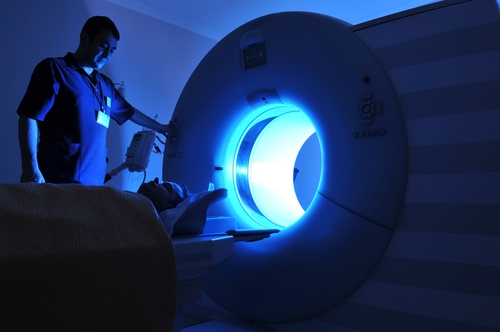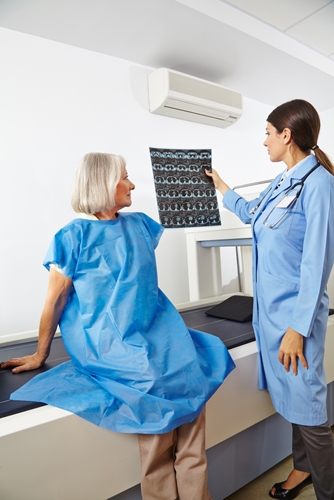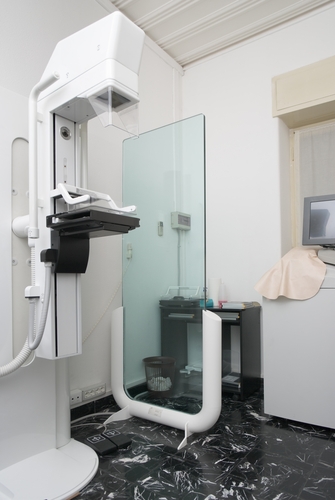A study published last month in the Journal of Medical Imaging and Radiation Sciences suggests Twitter may improve magnetic resonance imaging, reported Elsevier Health Sciences. Johnathan Hewis, a researcher at Charles Sturt University in Australia, reviewed over 400 MRI-related tweets from patients or individuals whose friends and family members have undergone scans. According to the study, Hewis then divided these posts into three categories: MRI appointment, scan experience and diagnosis.
A Range of Responses
Hewis found that the tweets captured a wide range of topics, including patient concerns about procedural cost and well-wishes from friends and family. He also discovered entertaining sub trends like the "MRI gown selfie."
"Fifteen patients tweeted a self-portrait photograph taken inside the changing cubicle while posing in their MRI gown/scrubs. Anecdotally, the 'MRI gown selfie' seemed to transcend age," Hewis said in a press release.
Patients also gave feedback regarding very specific aspects of the MRI experience and advised others on how to overcome exam-related fears like claustrophobia.
Improving The Patient Experience
At the conclusion of his study, Hewis suggested that social media channels like Twitter may have the potential to improve the MRI, as these platforms allow physicians to view unfiltered reactions from patients. The potential information pool is huge – 65 percent of adults now use social media platforms, reported Pew Research Center.
"This study demonstrates the potential use of Twitter as a viable platform to conduct research into the patient experience within the medical radiation sciences," Hewis wrote.
According to previous research on social media and its place in the medical field, Hewis might be on the right track with this sentiment.
In 2013 Dr. Catherine Chretien and Dr. Terry Kind evaluated social media as a patient-to-patient and patient-to-physician communication tool. Their study, which was published in the Journal of the American Heart Association, concluded that social media could transform medicine.
"Abiding by our ethical and professional commitments to maintain the foundations of public trust in the medical profession will be absolutely necessary to successfully incorporate social media in clinical care," they wrote.
In the February 2013 issue of the journal BMJ Quality and Safety, Dr. Ronen Rozenblum, a researcher at Harvard Medical School, touched upon the transformative effect social media could have on patient care. Rozenblum argued that these platforms have empowered patients, allowing them to more easily share their care experiences. Additionally, he proposed that researchers could use social media to gather data for studies on disease outbreaks and other wide-spread health-related phenomena.
"While we believe [social media platforms] are unlikely to supplant more traditional patient surveys, they will certainly complement them, and should help identify poor care and outstanding care. Thus, in 10 years, the question may not be how to use such data, but how we ever lived without them," Rozenblum wrote.
Some health organizations have embraced social media in an effort to establish industry-wide standards. In 2010 the Mayo Clinic established the Center for Social Media, which offers educational materials for physicians and other medical organizations looking to harness the power of social platforms.
Social Tools In Radiology
More recently, radiologists have started to use social media. Last year, Diagnostic Imaging polled its readers and found that more than half of respondents use social tools. And, according to a study published in the Journal of the American College of Radiology, private radiology practices are leading the way in social media adoption. Dr. McKinley Glover, the study's author, evaluated the top 50 private practices and found that 76 percent of them maintained at least one social media account.
"A radiology-specific social media presence will become increasingly important within the landscape of efforts to improve patient engagement in an increasingly patient-centered and competitive healthcare environment," Glover and his team concluded.
Ronny Bachrach
Latest posts by Ronny Bachrach (see all)
- Konica Minolta Debuts First-of-Its-Kind Digital U-Arm System at AHRA - July 27, 2016
- Researchers Detect Signs Of Stroke Risk Using MRI - June 27, 2016
- Imaging Biz: Q&A with David S. Channin MD: How to Make PACS Patient Centered - June 22, 2016










